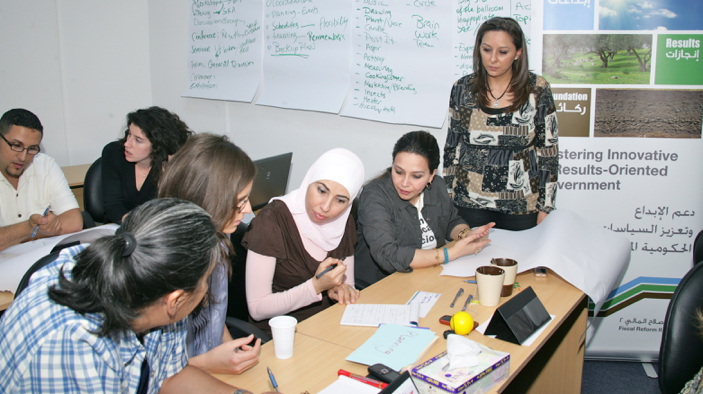Jordan’s Customs Department—A Middle East Model—Launches Regional Training Center
November 25, 2015
The Jordan Customs Department last week inaugurated its newly certified regional training center in Amman, a forum for customs staff from more than 10 Middle East countries to train, strengthen ties, and improve cross-border commerce and traffic. The center allows the Jordan Customs Department to conduct high-quality training for customs officers, partner government agencies, and private sector representatives in the region.
Jordan Customs Training Center joins Egypt and Saudi Arabia as hosts of accredited, regional centers in the Middle East. The World Customs Organization (WCO)’s international network of training centers plays a critical role in the development and delivery of training services that are adapted to specific, regional customs needs.
The inauguration also served to showcase the partnership between the Jordan Customs Department and the Jordan Fiscal Reform Project Bridge Activity (FRP Bridge), one of the U.S. Agency for International Development’s (USAID) leading initiatives in Jordan. Implemented by DAI, FRP Bridge supports the government’s economic reform process, improving Jordan’s macroeconomic foundation for economic growth by strengthening fiscal policy formulation, promoting public-private partnership, and improving cross-border trade.
Since 2009, FRP has supported improvements made to Jordan’s customs mission in collecting revenue, promoting investment, facilitating trade, combating smuggling, protecting the environment, and controlling movements of passengers, goods, and vehicles crossing the country’s borders.
FRP Chief of Party Roberto Toso said, “This accreditation is a great step forward for Jordan Customs and supports one of the Government of Jordan’s central strategic goals of increasing efficiency in cross-border trade and facilitating the free flow of goods in and out of Jordan.”

Attending the inauguration were Dr. Jim Barnhart, USAID mission director in Jordan; Dr. Ezzeddin Kanakrieh, secretary general of Jordan’s Ministry of Finance; Kunio Mikuriya, secretary general of the WCO; and other high-ranking officials from Jordan, Bahrain, and Saudi Arabia.
Jordan Customs operates 35 major and minor customs centers—including clearance centers, border centers, and post offices—in addition to customs houses located within the Qualified Industrial Zone. The FRP Bridge team works closely with Jordan Customs and partner government agencies and with supply chain members from the private sector, such as traders and customs brokers, to modernize customs operations and improve the flow of trade.
Jordan’s achievements in customs reform include:
- Implementing a Single Window for trade, with 17 locations covering more than 90 percent of all customs transactions.
- Building Jordan’s Authorized Economic Operator program—the Golden List—to include 54 active, certified companies.
- Expanding Pre-Arrival Processing to improve cargo-handling processes at Aqaba Seaport, Jordan’s sole seaport.
- Improving the Comprehensive Integrated Tariff System, the launch of which will position Jordan among the world’s strongest customs administrators, providing international traders with a single source of information, such as duty and tax rates and required documentation (certificates, quotas, restrictions, and licenses).
RELATED CONTENT:
DAI’s Kregg Halstead Describes for University Audience the Growth of Parliament in Embattled Kyrgyzstan
Kyrgyzstan’s Lake Issyk Kul is a natural wonder: one of the largest and deepest lakes in the world, fed by natural mineral springs and surrounded by snow-capped mountains, it could be a premium destination for the world’s tourists.
Read More